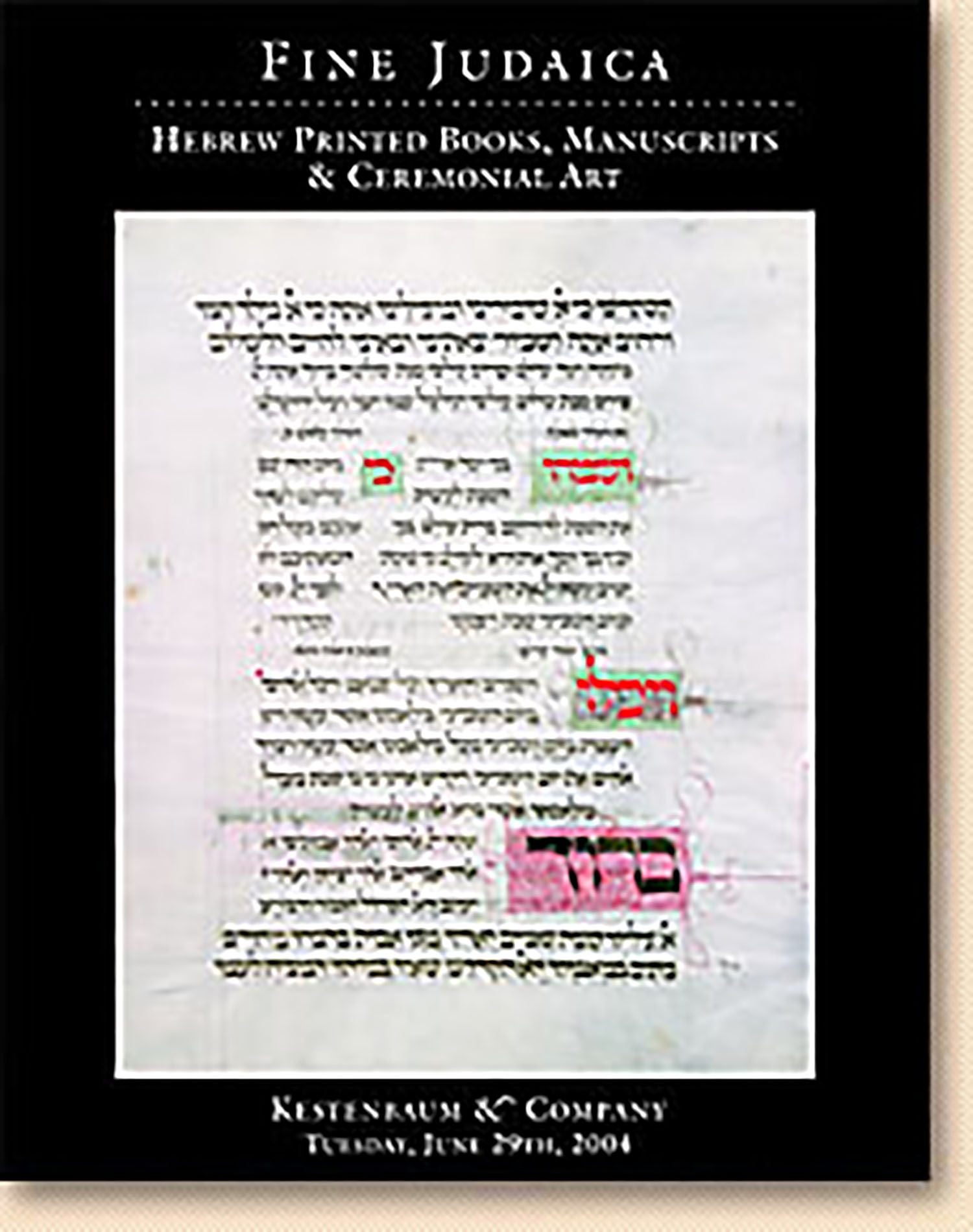LUZZATTO, SAMUEL DAVID

AUCTION 24 |
Tuesday, June 29th,
2004 at 1:00
Fine Judaica: Printed Books, Manuscripts, Ceremonial Art and Holy Land Maps Including Ceremonial Art from the Collection of Daniel M. Friedenberg
Lot 169
LUZZATTO, SAMUEL DAVID
Gorice: J.B. Seitz 1852
Est: $300 - $400
PRICE REALIZED $150
Samuel David Luzzatto (1800-1865) was a uniquely Italian mixture of pious adherence to religious tradition and daring modern scholarship. The tension between these two poles is voiced in the present dialogue between “the Guest” (a Polish interloper) and “the Author.” The reader is in for a surprise: The views of the Guest, which represent an assault on the antiquity of the Kabbalah and call into question its faithfulness to received rabbinic tradition, are actually those of Luzzatto himself. While accepting the antiquity of Sepher Yetzirah (the Book of Creation), Luzzatto denies that the “ten sephiroth” alluded to therein are the ten neoplatonic hypostates of later Kabbalah. To Luzzatto’s thinking, the “ten sephiroth” of antiquity are nothing but the decimal system of mathematics! In an addendum to the book, the author mentions the latest findings of Landauer, who would attribute composition of the Zohar to Abraham Abulafia, and of Adolph Jellinek, whose ascription of the Zohar to R. Moses de Leon, Luzzatto finds most trenchant
